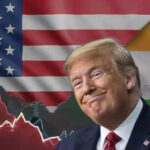Elon Musk, once a prominent supporter of President Donald Trump, is now at odds with the administration over escalating tariff policies that threaten Tesla’s global operations. The electric vehicle manufacturer has expressed concerns that retaliatory tariffs could harm its competitiveness in international markets.
Tesla’s apprehensions were formally communicated in a letter to U.S. Trade Representative Jamieson Greer. The company emphasized that while it supports fair trade, U.S. exporters like Tesla are disproportionately affected when other nations retaliate against American trade actions. The letter highlighted instances where previous U.S. tariffs led to immediate countermeasures, including increased duties on electric vehicles exported from the United States, thereby diminishing their competitiveness abroad.
The rift between Musk and the Trump administration has been further accentuated by public disagreements with key officials. Musk has openly criticized White House trade adviser Peter Navarro, labeling him “a moron” in response to Navarro’s claims about Tesla’s manufacturing practices. This discord underscores the broader tensions within the administration regarding trade policies.
The implementation of stringent tariffs has not only strained international relations but also unsettled financial markets. President Trump’s decision to impose a 104% tariff on Chinese goods disrupted global trade and raised fears of a recession. The administration faced internal pressure, notably from Treasury Secretary Scott Bessent and Musk, leading to a temporary 90-day pause on the tariffs. This decision was influenced by market volatility and concerns over economic stability.
Despite this temporary reprieve, the uncertainty surrounding tariff policies continues to impact Tesla. The company’s stock experienced significant fluctuations, with a notable surge of nearly 23% following the announcement of the tariff pause. Analysts remain cautiously optimistic, citing upcoming product launches and strategic initiatives as potential growth drivers. However, the ongoing trade tensions pose a persistent challenge to Tesla’s financial performance.
Musk’s evolving relationship with Trump reflects a broader narrative of shifting alliances and policy disagreements. Initially aligned with the administration’s economic vision, Musk’s recent criticisms highlight the complexities of balancing corporate interests with political affiliations. His public endorsements and subsequent disagreements with Trump’s policies illustrate the challenges faced by business leaders navigating the current political landscape.



 Trump Initiates 90-Day Tariff Suspension for Most Nations
Trump Initiates 90-Day Tariff Suspension for Most Nations 